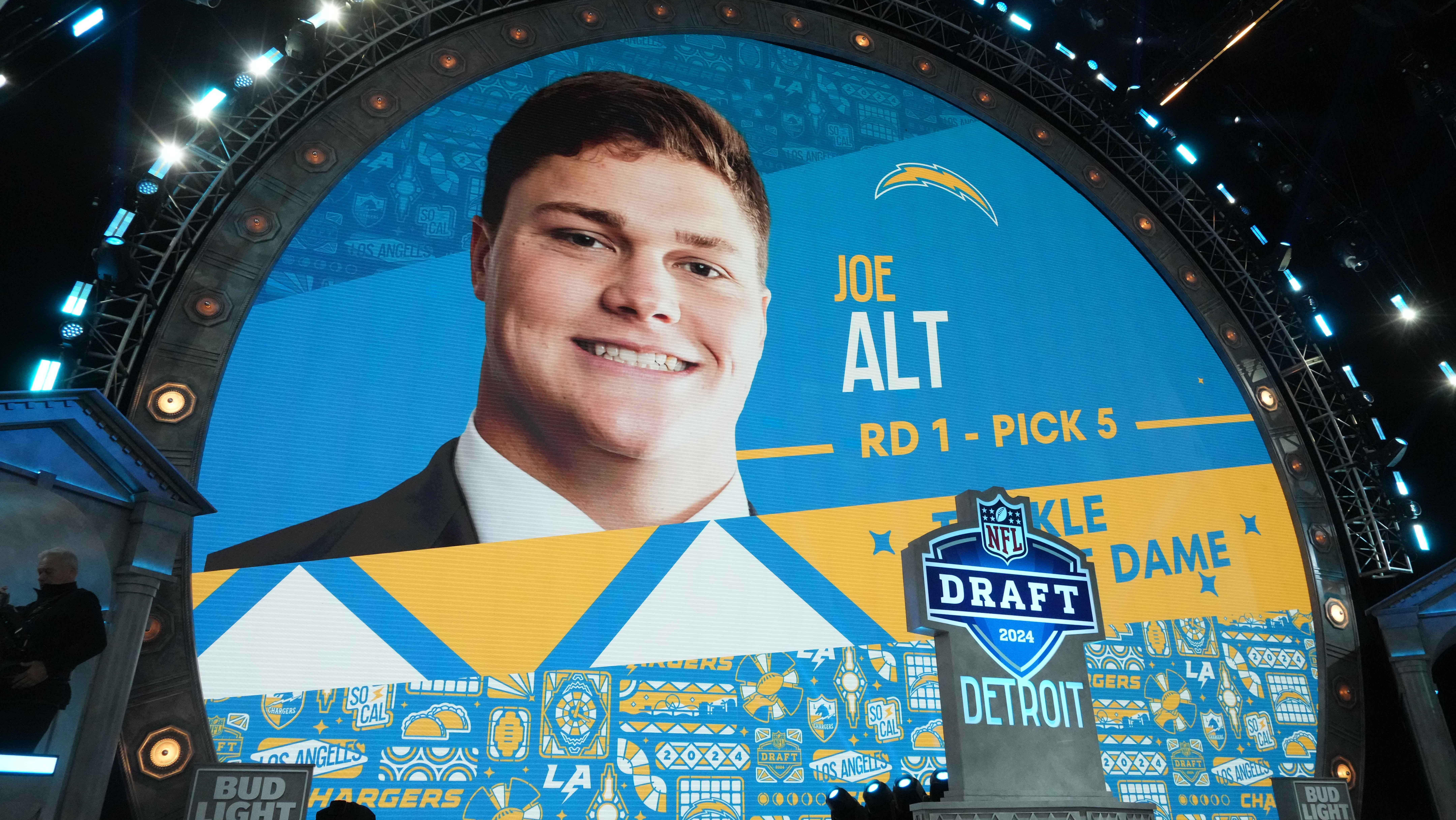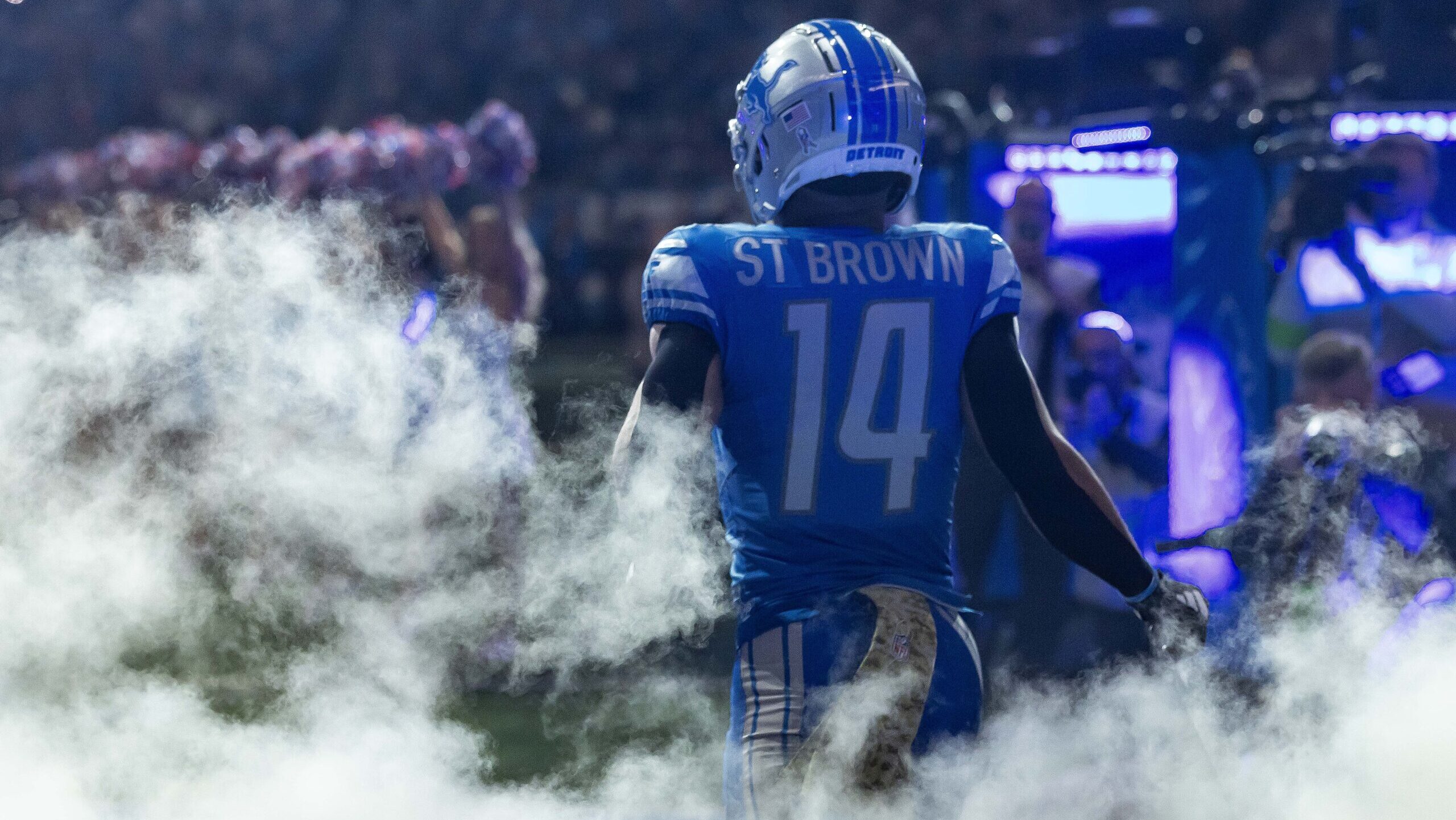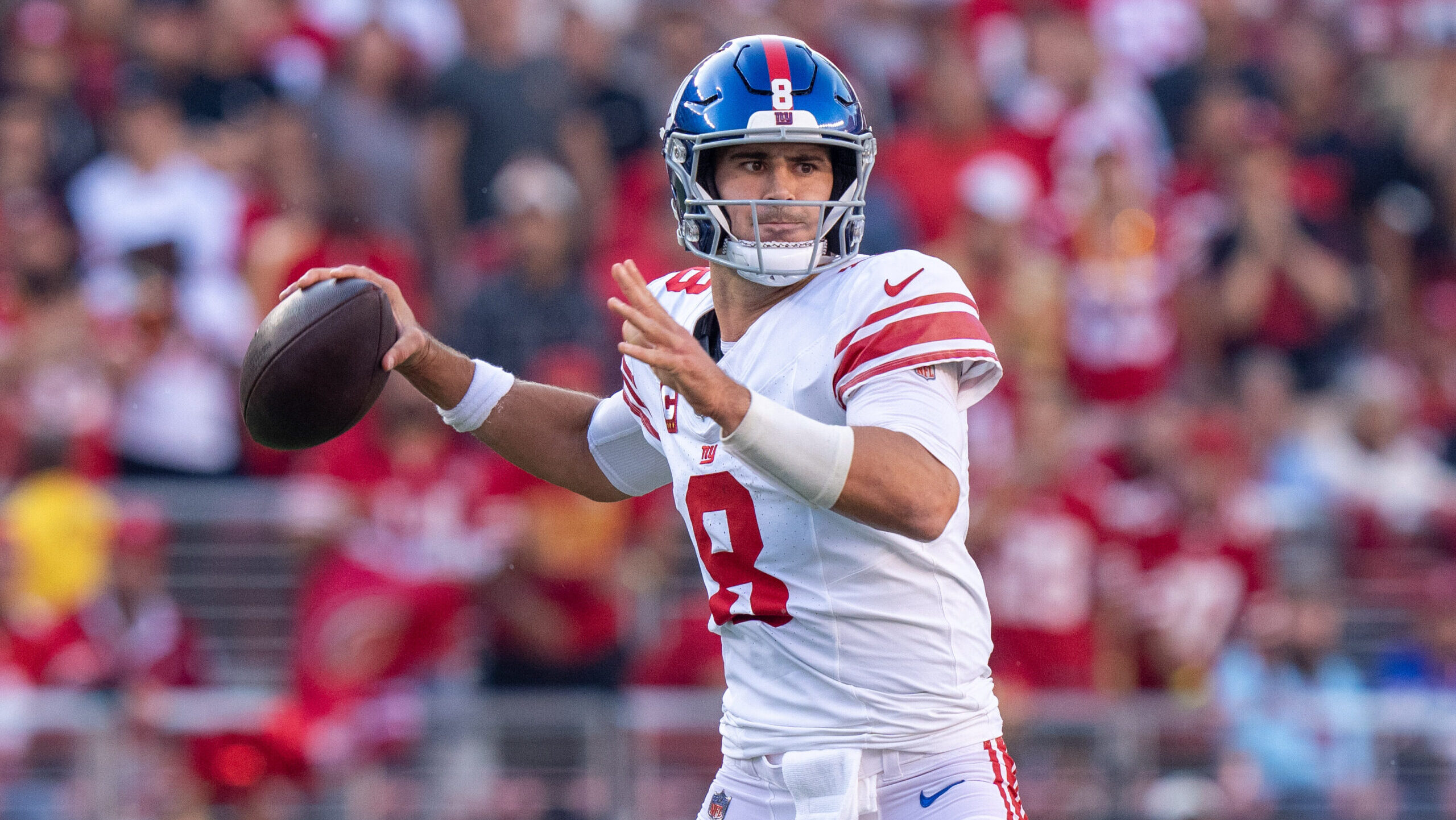Analysis
9/23/23
4 min read
How Aaron Rodgers' Decision to Play or Not Will Affect Jets' Cap Space
It has been 12 days since Aaron Rodgers’ fateful, devastating injury just four snaps into his New York Jets debut. Although Rodgers underwent an “innovative” surgery that gave him a chance to return for the playoffs, it would be miraculous to return in five months.
All that aside, it is realistic, albeit pessimistic, to believe that Rodgers’s career is over. An Achilles tear is detrimental to any athlete, let alone a 39-year-old, 17-year veteran. Here, we discuss the salary cap implications of his potential retirement from the Jets.
If Rodgers wants to continue with the Jets, he will likely receive his 2024 League Year compensation because it is fully guaranteed, leaving his cap treatment unaffected. A full guarantee entails three protections: against injury, skill and cap. Those guarantees only apply if the team terminates the contract (releases Rodgers).
As such, this situation provides two outcomes that depend largely on what Rodgers wants to do regarding next season. If Rodgers wants to play next year, he is entitled to compensation whether or not he can pass a physical examination as provided in the 2020 NFL Collective Bargaining Agreement (“CBA”).
The physical examination provided in Appendix K of the CBA provides:
“Should there be the need for additional examination or testing in any specific area, such will be permitted.
- General Medical Examination
- History
- Examination
- Orthopedic Examination
Examination visually, including stress testing and range of motion for all of
the following:- . . . ankle; check Achilles tendon for abnormalities and by jerk test
- Flexibility
Testing of hamstrings and neck - EKG
- Echocardiography
- Blood Testing
- Neuropsychological Testing (Baseline) Urinalysis
- Vision Testing
- Hearing Test
- Dental Examination
- Chest X-ray (initial screening only, and then based on past history and complaints)
- X-ray all previously injured areas (at physician’s discretion).”
On the other hand, Rodgers can choose to hang up the cleats. If Rodgers decides to “voluntarily retire” under Article 4, Section 9 of the CBA, that would constitute a “forfeitable breach” under Article 4, Section 9(a). This would allow the Jets to require Rodgers to repay the prorated portion (the salary cap allocation) of his signing bonus for the upcoming year of his current contract with the Jets, roster bonuses, option bonuses and/or reporting bonuses.
The CBA refers to these forms of compensation as “forfeitable salary allocations.” However, Article 4, Section 9(a)(vi) provides that Rodgers might return to play for the Jets, even after an apparent decision to retire, and the Jets must either take Rodgers back under his existing contract with no forfeiture or release him and seek repayment of any forfeitable salary allocations for future years. Although the Jets have the legal right to recover those forms of compensation, they are doubtful to do so.
Further, if Rodgers retires, that would render his Paragraph 5 salary null and void. Although his salary for the 2024 League Year is fully guaranteed, Rodgers must hold up his end of the bargain to secure that compensation.
More succinctly, Rodgers must intend to play next year to earn his salary. Article 4, Section 9(g) is permissive regarding the team and player’s ability to negotiate circumstances under which the guarantee of any unearned compensation, including, without limitation, base salary, future year roster bonuses, option bonuses, or reporting bonuses, which includes retirement. Ultimately, the guarantee is immaterial if Rodgers retires rather than performs under the contract.
Overall, the situation comes down to Rodgers' decision regarding playing next year. It boils down to this: (1) Rodgers intends to play under his existing contract as if nothing had happened at all, regardless of whether he is physically capable, changing nothing concerning the Jets’ salary cap calculation, or (2) Rodgers decides to retire, in which the provisions of Article 4, Section 9(a) and, perhaps, 9(g) trigger.
If Rodgers decides to retire, his guarantees will be null and void. In essence, the Jets will get out from under their obligations to Rodgers if he chooses not to return, but if he does, things carry on.







